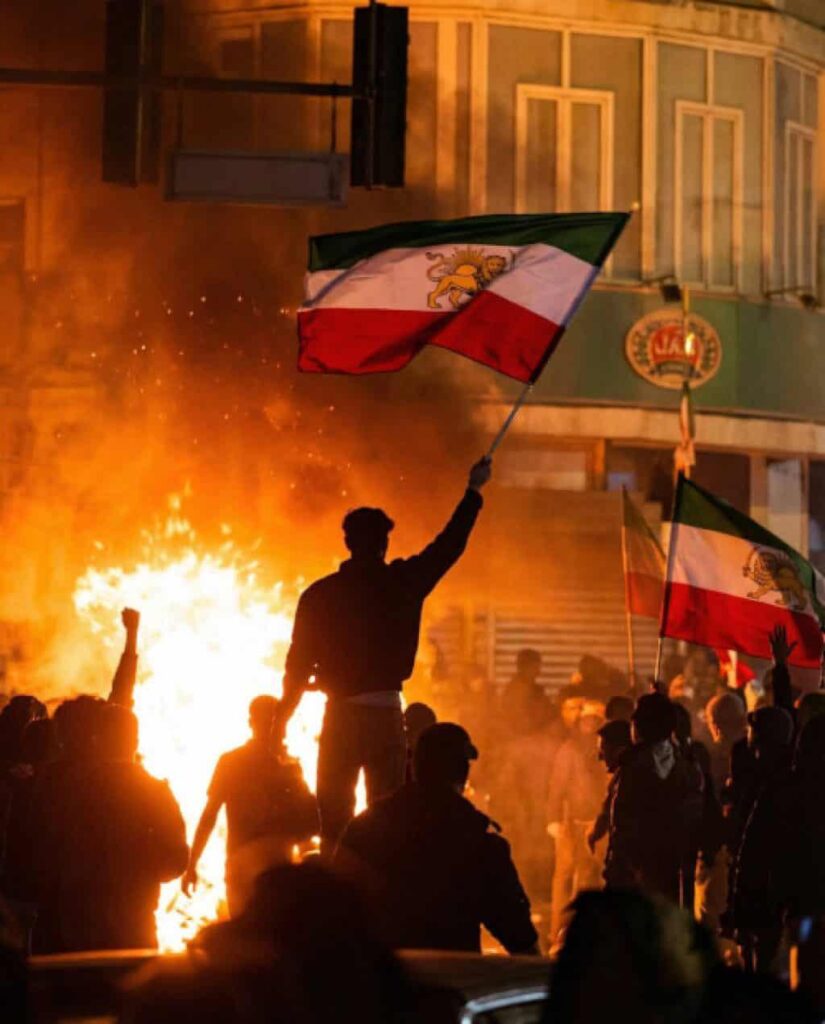For many, India is an enigma. It simultaneously styles itself the ‘Mother of Democracy’ whilst maintaining a close relationship with authoritarian Russia. Government Ministers proclaim that India’s Hindu cultural heritage lays the foundations for a secular democracy, yet India’s Prime Minister publicly inaugurated the Ram Mandir in Ayodhya, near the birthplace of the deity Rama, on the site of a disused mosque – appearing to favour one community over the other. India has the cultural credentials to foster pluralism, yet there are growing concerns over polarisation between Hindus and Muslims. Navigating this complexity and India’s apparent contradictions cannot be reduced to a battle between autocratic nationalism and liberal democracy, or secular pluralism pitted against the influence of religion. It requires engagement with a wider range of ideas, starting with the concept of the ‘civilisational-state’. This reveals an India that is increasingly deploying its ancient past to sustain a contemporary identity that is beginning to shape its future engagement with the world.
The idea of the civilisational-state has garnered greater attention as the international order has become increasingly multipolar, and as liberal democracy has appeared increasingly under challenge. Most often applied to Russia, China and India, it signals a challenge to the decades-long dominance of the model of the Western European liberal nation-state. In its place, each aspiring civilisational-state seeks to root its domestic and foreign policies not in universal liberal principles such as individual rights, freedom and the rule of law, but in a construction of a historical ‘civilisational’ culture. Thus, the CCP roots China in Confucianism, Putin’s war rhetoric is rooted in an idea of Russkiy mir (‘Russian world’) that is both nationalistic and rooted in Orthodox Christianity, whilst India’s External Affairs Minister S Jaishankar claims India is “one of the few civilizational states that has survived the ravages of history.” Even the US State Department has, in May 2025, invoked a shared civilisational heritage with Europe rooted in the natural law traditions of medieval Christianity. Each represents a distinct identitarian moral landscape derived from that movement’s construction of the past.
Though the governance practices of the civilisational-state vary from country to country, four key elements can be identified. First, it purports to represent a group defined not by territory, but by ethnicity, culture or religion – including members of the group located outside that state. Second, this group is often defined through cultural nationalist movements whose claims are then invoked by governments and the state apparatus. Third, civilisational-states challenge the dominant liberal and multilateral institutions, and the values and principles on which they are grounded. Finally, they assert that their political, social and economic thought is grounded in distinct ‘indigenous’ paradigms rather than the intellectual heritage of the West. Scholars such as the late Christopher Coker have suggested that India cannot be a civilisational-state because its cultural diversity prevents the cultural essentialism implicit in civilisational-state thinking. Yet an examination of India’s contemporary foreign policy and constitutional practice suggests otherwise.
India’s claims to be a civilisational-state begin with the global presence of its diaspora – and in particular, those within the diaspora who identify as ‘Hindu’. The most obvious example of a policy that favours its diaspora is its Citizenship Amendment Act 2019. This provides an accelerated pathway to citizenship for certain religious minorities – Hindus, Sikhs, Buddhists, Jains, Parsis and Christians – from Afghanistan, Pakistan and Bangladesh who entered India without a visa on or before 31 December 2014. It aims to protect those facing religious persecution, yet has been criticised for communalising the basis of Indian citizenship; notably, this route is unavailable to Muslims, including the Rohingya and Ahmadiyyas persecuted in these countries. The Hindu diaspora – which for some includes Sikhs, Buddhists and Jains – is front and centre of the groups that benefit from this policy.
This emphasis on the diaspora is carried over into India’s bilateral engagement elsewhere in the word. Around half of the population of Mauritius is Hindu. On state visits, both the Prime Minister of India and India’s External Affairs Minister have regarded the diaspora as the primary driver of the India-Mauritius relationship based on shared culture, heritage and kinship, as many Mauritian Hindus are descended from indentured labourers. A further emphasis on access to Hindu pilgrimage sites in India and the importance of the deity Rama in Mauritius point to a geopolitical relationship driven by cultural factors. On this view, India’s support for Mauritius’ claim to sovereignty over the Chagos Islands may be more than just a hedging strategy against Chinese influence.
The cultural nationalist movements that feed the civilisational-state construct a ‘deep past’ that provides historical underpinning for an articulation of identity. References to an ancient Indic ‘deep past’ have been increasingly deployed over the last decade to frame India’s relationships with China and many of its Southeast Asian neighbours. On visits to China, India’s Prime Minister has invoked the journey of the seventh-century CE Buddhist monk Xuanzang from China to Nalanda University in ancient India to study Buddhism and carry manuscripts back to China. This establishes a ‘civilisational connect’ between two supposed civilisational-states alongside a contemporary economic relationship. Relations with Thailand have emphasised a centuries-old shared Hindu and Buddhist heritage and cultural tourism. India has promised to undertake restoration and conservation work at temples in Cambodia and Vietnam. Together with its focus on its diaspora, India’s foreign policy increasingly bears an identitarian cultural imprint.
India has also used the principles associated with its ‘deep past’ to argue for a vision of international order that challenges the current balance of power. India has been pushing for a permanent seat on the UN Security Council for decades, under several governments – from Narasimha Rao in 1994 and Manmohan Singh in 2011 to Shashi Tharoor in 2013. The UK, France and the USA – under both Donald Trump and Joe Biden – have supported that claim. Behind this commitment to an international order where India plays a greater role, according to its External Affairs Minister S Jaishankar, is the Sanskrit maxim vasudhaiva kutumbakam (the world is one family) from the Maha Upanishad. This offers an alternative perspective on India’s foreign policy to the more conventional references to multi-alignment and strategic autonomy, which paint an image of an emerging power principally concerned with its own interests. The apparent oxymoron here of internationalism rooted in a nationalism that by definition rejects European liberalism is perhaps best explicable by reference to a nascent paradigm of Indic thought: Jaishankar himself has claimed that “stronger nationalism at home coexists traditionally with enthusiastic internationalism abroad”.
These claims suggest the need to adopt an alternative perspective on India’s foreign policy. Conventional approaches emphasise India’s multi-alignment – its apparent attempts to ‘play all sides’ – and its strategic autonomy – its development of domestic capabilities to enable this. On these views, India is nothing more than a pragmatic actor after its own interests, ready to set relationships aside where expediency demands it. Although these frameworks are not without their merits, it is becoming clearer that they do not represent the full range of culturally driven reasoning behind India’s vision of the world and its place in it. As India’s economy grows, it will become an increasingly consequential actor on the global stage. The way it presents itself on that stage today often appears contradictory; by engaging with the language of the civilisational-state, we can start to make more sense of its cultural claims and the values with which it approaches the world.



